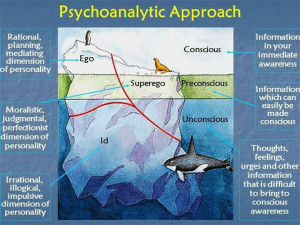
Relativism and Husserl
The 'problem of relativism' already presupposes a certain ontological or ideological perspective. Is relativism a problem? The field of 'Student Development' as studied by William Perry, for example, posits relativism as a stage of development which surpasses the stage of multiplicity of perspectives by acknowledging that knowledge is qualitative, contextually defined, based on evidence and supporting argumentation - the reasoning that connects evidence to claim.
Relativism as opposed to absolutism presents a problem. As soon as a relativist takes up a position, or makes a commitment, or argues their case, the relativist has assumed an absolute in relation to a different or opposed perspective. Habermas' describes this as a performative contradiction - the relativist has taken a position abolishing the position of relativism.
Husserl asserts absolute self-consciousness in the context of co-subjectivity, intra-action or intersubjectivity. It is important to recognize that the subject, the issue in question, has a brain which is distinct from all other brains and thus an absolute. Relativism underlies pluralism and legal positivism in terms of values - there are individual differences. In this sense, Husserl holds to a consensus position where interlocutors can address each other's differences and still come to some agreement as opposed to a monadic conflict of absolute positions.
Husserl posits relativism as uncertainty, not as the problem that neither truth nor falseness can be determined. Husserl moved through several stages of development of his ideas which ended with his turn to transcendental consciousness - objective reality must correlate with consciousness!
Relativism is sometimes defined as competing descriptions of reality but when metaphysical realism is thrown into the mix-master, relativism takes on irrational connotations - far from the kinds of puzzles that Hempel, for example, addressed. Husserl's position is non-empirical - he opposed science! Empirically based research and practically oriented explanations are relativistic, that is, the facts and reasons of a case are distinct from the motivations of the subject - unless you can connect them up.
Usually, idealism and anti-realism are considered as 'relativism.' Husserl does not mediate his methods historically, except to detail the theoretical views related to his distinctions of the immediate givenness of the object and the primacy of the subject.
Husserl posits absolute differences between notions of subject and object, essence and existence, realism and idealism, although he elucidated the interpenetration or synthesis or correlation of internal and external perception in Ideas I and II. Unwanted knowledge for a particular perspective or worldview constitutes relativism in many particular cases.
Husserl's ideas were in conflict against both Heidegger - rejection of the subject, and Sartre, but also ran up against Levi-Strauss' structuralism, or unconscious structuration, similar to Raymond Williams' culture as 'structure of feeling.' However, one aspect which they all may concur in is the role of intuitive analysis.
Husserl objected to positivism - facticity unrelated to values, and psychologism, that is, to experience as reality. Positivism however was the move from Wittgenstein’s logic in the Tractatus towards a linguistic basis for theory. LW’s logical form for atomic statements were converted by Logical Positivists into protocol statements set by convention although defined as pure immediate experience without any theory. Thomas Kuhn sees this as determining the paradigm for scientific thinking. Husserl’s “Crisis in the European Sciences” is perhaps the culmination of his anti-psychologism: experience is not reality. The Positivist’s verification procedures eliminates any absolutism such as a moral judgment, i.e. stating “here now there is killing!”
In other words, in language analysis in both Analytic Philosophy and Continental Philosophy, certain conventions are overdetermining which is to say theories are underdetermined by evidence.
Idealism is relativism because it is uncertain, does not abide by any correspondence or verification/confirmation procedure - any statement can serve as a protocol statement, like an axiom.
Of the 3 theories of truth: correspondence, coherence, and consensus or pragmatism, idealism at best might present what it believes is coherent, or conceptual, but where is the evidence.
Joseph Gatt In my opinion, the conflation of idealism with relativism is a very regrettable modern development. Historically speaking, the central idea of idealism was a refutation of materialism, i.e., the philosophical doctrine that holds matter to be the fundamental substance in Nature, and all things, including mental states and consciousness, are results of material interactions. According to philosophical materialism, mind and consciousness are by-products or epiphenomena of material processes (such as the biochemistry of the human brain and nervous system), without which they cannot exist.
Philosophical materialism is thus directly opposed to idealism, where mind and consciousness as first-order realities to which matter is subject and where material interactions are secondary. In other words, idealism is a spiritual/transcendent take of reality.
Regrettably, nowadays the spiritual dynamic of idealism is being lost, and philosophical idealism is being redefined by some as that doctrine that the mind is the most basic reality and that the physical world exists only as an appearance to or expression of the subjective mind --- thus the unfortunate modern conflation with relativism.
Such a redefinition of idealism --- that basically equates it with the subjective mind --- is actually entirely at odds with the classical idealism viewpoint. For example, Bishop Berkeley, an influential 18th century idealist, whilst stressing the primacy of consciousness and spirituality over mere material phenomena, emphatically denied that the real world is simply a 'projection' of one's mind, in the way that hallucinations or dreams or imaginings might be projections. Indeed, George Berkeley had argued that reality is independent of our own, subjective, finite human will, but dependent on God's will. Thus, the related notions of regularity, and cohesion that the laws of Nature (i.e. the laws of God) imprint on our consciousness, are central to the workability of Berkeley’s idealism, and in such regularity and coherence lies the proof that establishes what is objective reality.
Fred Welfare Husserl is not an idealist. His transcendental phenomenology is the attempt to address the real nature of things, and other human beings, by bracketing or reducing our assumptions and theories to approach the things themselves. In one sense, Husserl, like Kant and Hegel, are cutting through the bombast of consciousness, and in another sense he is describing how we can know reality itself. Transcendental is not simply a superior or idealist "transcendent" position but the assertion of the universal. Also, transcendental idealism is a value orientation, like purity or perfection found in the hostile religions. Husserl offers a series of reductions, at least 8, which eliminate biases like this, see Ideas I and II.
The point about relativism is not the debate between idealism and materialism, or the hard problem between consciousness and brain, but the point about subjectivity that subjects come to agreement about propositions concerning reality in natural science and about historical events, including immanent events. As I stated here, idealism is a species of relativism, of psychologism, that lacks the reduction to logic. An example is the dilemma of the judge who must decide among the facts of the case which features are essential, that is, which facts are the really important ones, the relevant ones, the facts upon which the decision hinges. This is a practical example of the reductions required to determine the essence of the case. Relativism is a perspective, like psychologism, that must be transcended!
Different Notions of the Unconscious
There are different notion of unconsciousness at play. Lacan, and French philosophy-literature generally includes unconscious as inner thought, as conscience, and consciousness as perception, appearance and actions like speech, gestures and movements. However, many other people think of consciousness as internal and the unconscious as what is suppressed, forgotten, and under repression - what cannot be thought but has effects in spite of the person. So, Lacan's structural notion of the unconscious and language is the same as mind and speech whether that speech is subvocal or enunciated immediately to another person who is socially present. This ambiguity is overlooked by Pound who does not recognize a spectrum of definitions of the unconscious, particularly the individual's own biases and blind spots or symptoms, nor of the several levels of language use - the primary one being internal talk to self and to part objects and only secondarily to others as loud speech acts or performances. Intra-action - the speech acts internal to others - the sending-receiving circuit - must also be accounted for in any discussion of language usage.
Biden’s Accomplishments in First Year
Biden passed the American Rescue Plan which gives small businesses a restart package after the pandemic shutdowns, and also gives state and local governments funding to prevent budget shortfalls. Biden got the infrastructure bill passed and every state has billions for roads and bridges and other infrastructures. Biden also expanded wireless broadband to every American!
Biden is addressing the pandemic with science providing PPE, vaccinations and testing continuously - for 50M in 100 days after taking office. All needed supplies are available today!
Biden rejoined the Paris Climate Agreement. The Build Back Better bill has stalled but will likely be divided into several smaller bills that address climate change, child tax credits, lower drug prices and paid leave for family and medical emergencies. Although increasing the minimum wage and union organizing did not pass the senate due to Manchin-Sinema treachery, these House initiatives are popular and have found action all across the US in popular movements. The Senate has also blocked VAWA.
Biden has directed funding towards transgender anti violence, the Palestinian Authority, and reversed Trump’s family separation policy at the border! Biden ended the war in Afghanistan but not yet in Yemen. Biden is working on rejoining the Iran nuclear deal and denuclearlizing NK.
Biden paused student loan repayment. He directed the Justice Dept to end the use of private prisons.
Republican Party rejection of any cooperation with Biden has stalled several initiatives but especially exacerbating the pandemic. Not only are national and state elected politicians openly contradicting the President but their base is rejecting the simple solution of getting vaccinated and dying at a record rate of nearly 2000/day - there is no limit to the excuses that Republican literally cry out everyday - it is a pathetic display of ignorance and arrogance and emotional neurosis!
Joseph Gatt Isn't it the case that President Biden's agenda was stymied more by Democratic Senators Joe Manchin and Kyrsten Sinema, than by the Republican Party? 🙄
Fred Welfare Yes, it does look like these two so-called Democrats have been appropriated by the GOP. However, for the entire Republican Senate to form lock-step obedience to McConnell and other party leaders is a pathetic lack of courage, as if there are neither any merits to Biden's initiatives nor any harm from Republican vetoes!







